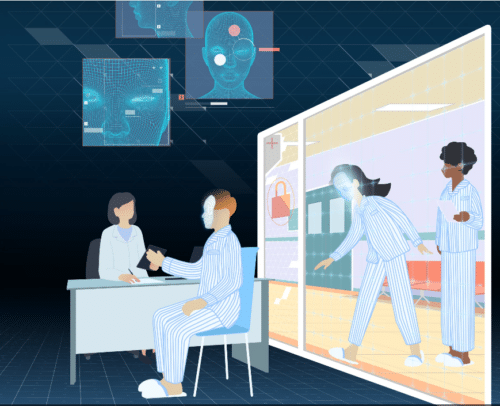A team led by Cambridge and China has developed a digital mask using a deep learning algorithm for analyzing disease-relevant features from facial images while ensuring privacy protection of an individual

Often people avoid sharing their medical data for public medical research or electronic health records due to privacy issues, this obstructs the advancement of digital medical care. Hence, the scientists developed digital mask using three-dimensional (3D) reconstruction and deep learning algorithms to remove identifiable features from facial images, while keeping disease-relevant features needed for diagnosis, this ensures privacy protection of an individual. Facial images can be utilized to detect early signs of various diseases such as deep forehead wrinkles and wrinkles around the eyes are significantly associated with coronary heart disease, while abnormal changes in eye movement can indicate poor visual function and visual cognitive developmental problems.
“During the COVID-19 pandemic, we had to turn to consultations over the phone or by video link rather than in person. Remote healthcare for eye diseases requires patients to share a large amount of digital facial information. Patients want to know that their potentially sensitive information is secure and that their privacy is protected.” Professor Haotian Lin, Sun Yat-sen University, Guangzhou, China
Professor Lin and colleagues invented a digital mask that takes an original video of a patient’s face as input and provides a video based on the use of deep learning and a 3D algorithm as an output. This process removes the patient’s personal biometric information as much as possible, from this it was difficult to identify the individual. Depending upon the extracted features, deep learning extracts features from various facial parts, while 3D reconstruction automatically digitizes the shapes and movements of 3D faces, eyelids, and eyeballs. It is very difficult to obtain original videos from digital mask videos as most of the essential information is removed during the process of conversion.
Professor Patrick Yu-Wai-Man from the University of Cambridge said: “Digital masking offers a pragmatic approach to safeguarding patient privacy while still allowing the information to be useful to clinicians. At the moment, the only options available are crude, but our digital mask is a much more sophisticated tool for anonymizing facial images.
This research will make telemedicine phone and video consultations possible, making healthcare delivery more efficient without compromising an individual’s privacy concerns.
Click here for the Published Research Paper







